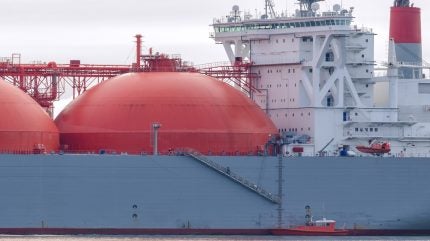
Mitsui OSK Lines (MOL) has announced a long-term time charter agreement with QatarEnergy for six new QC-MAX LNG carriers, each with a capacity of 271,000m3.
The vessels, scheduled for delivery between 2028 and 2031, will be constructed at Hudong-Zhonghua Shipbuilding in China and co-owned with COSCO SHIPPING LNG Investment (Shanghai).
As an owner of LNG carriers, MOL has maintained a relationship with QatarEnergy since the mid-1990s, primarily through its global LNG transportation services.
The addition of these vessels brings MOL’s total awarded ships under QatarEnergy’s North Field Expansion Project to 13.
The QC-MAX carriers are designed with an advanced technology to deliver better environmental performance, aligning with MOL’s Environmental Vision 2.2.
In April 2023, MOL introduced the Environmental Vision 2.2 to achieve net-zero GHG emissions by 2050, building on progress from its 2021 roadmap.

US Tariffs are shifting - will you react or anticipate?
Don’t let policy changes catch you off guard. Stay proactive with real-time data and expert analysis.
By GlobalDataThe updated plan includes enhanced key performance indicators (KPIs) and milestones for greater sustainability impact.
This initiative is expected to contribute to MOL’s sustainability issues, which include safe transportation, marine and global environmental conservation, and innovation in marine technology.
Last month, MOL and Kansai Electric Power Company (KEPCO) signed a memorandum of understanding (MoU) to jointly study liquefied hydrogen carriers.
The collaboration will explore the maritime transport of liquefied hydrogen, a critical element in building a hydrogen fuel supply chain.
MOL also announced a collaboration with PETRONAS CCS Ventures and MISC in September to develop liquefied carbon dioxide (LCO₂) carriers.
The collaboration aims to advance and commercialise technology for carbon capture and storage (CCS) projects.



